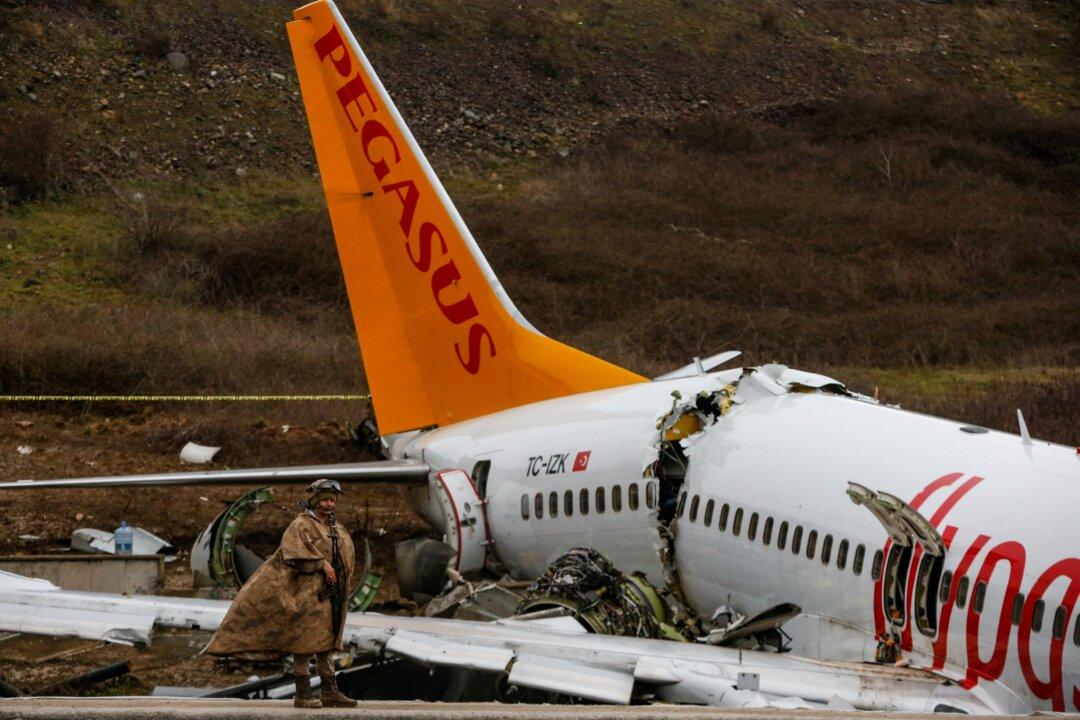Passengers who lived through the crash landing in Istanbul that killed three people and left a Turkish plane crumpled into pieces say the plane’s descent felt unusually fast.
Engin Demir, who was injured in the crash, told NTV television that he really noticed the speed as the Boeing 737 operated by low-cost Pegasus Airline landed at Sabiha Gokcen Airport on Feb. 5 evening.





